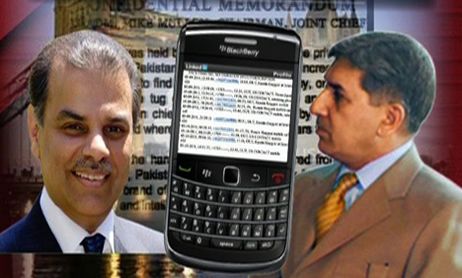That Mansoor Ijaz is an ultra-wealthy and well-connected elite is no question. But in addition to an outsized bank account and an outsized rolodex, the Pakistani-American neocon also has an outsized ego to go with it. Surat Luqman (31:18) says, “And do not turn your cheek toward people and do not walk through the earth exultantly. Indeed, Allah does not like everyone self-deluded and boastful”, and it appears that the clever boaster may be getting his comeuppance.
Mansoor Ijaz has long bragged of his extravagant wealth and his connections to various governments and intelligence agencies, including the ISI. On August 2002, Ijaz bragged to Vanity Fair about his role in connecting Wall Street Journal reporter Daniel Pearl with Khalid Khawaja as well as ex-CIA director R. James Woolsey.
Neither was this Ijaz’s, born and raised an American, first encounter with Pakistani officials. He had tried to become a lobbyist for Pakistan when Ambassador Maleeha Lodhi represented the nation in Washington, but she raised questions about his credibility. He was later accused of writing anti-Pakistan pieces after they refused his $15 Million demand to deliver votes in the US Congress – a demand that Ambassador Lodhi undoubtedly saw as a trap.
So this latest episode of international intrigue bears certain hallmarks. Mansoor Ijaz was supposedly a trusted ally of Pakistan, only to end up committing what is supposed to look like a double-cross by outing his alleged secret mission in what he described as the most important paper in the world.
During an interview with Barkha Dutt on NDTV on Sunday, Mansoor Ijaz again bragged of his home in Monaco and described himself as “anti-ISI”. This should come as no surprise to anyone who read his Financial Times op-ed in which he termed the ISI as “terror masters” and on 5th May told an American news programme that our military and intelligence agencies not only knew about Osama bin Laden’s location, but helped him move about the country to avoid detection.
Compare that to Ambassador Husain Haqqani’s 8th May appearance on ABC News in which he strongly argued that neither the civilian government nor the military nor the intelligence agencies had anything to do with Osama bin Laden, and that a full investigation would be launched into the issue.
Then the news broke that DG ISI himself met with Mansoor Ijaz a few weeks ago at Ijaz’s posh London hotel. The meeting was supposed to be to find out what evidence Ijaz had to support his accusations. Obviously many people saw this as evidence of a set-up. Why were secret meetings being held not with ISI analysts or forensics agents, but the DG himself? Perhaps it was because the DG did not need analysts to tell him what the American was holding because he knew exactly what he was going to find before he ever reached Ijaz’s hotel room.
Sources are saying that there may be an unexpected twist in the drama, and that the infamous BBM messages that Mansoor Ijaz has shared did not come from Haqqani but from an ISI officer posing as Haqqani as part of a sting operation against the notorious meddler. The double-crosser was himself actually double-crossed.
After dealing with him in the past, our national agencies would surely have kept a close watch on such a character, especially as he was going around to every American media group aligned with the neoconservatives to spread anti-Pakistan propaganda. Despite his ancestry, Mansoor Ijaz is an American, not a Pakistani, and our agents would have to have the goods before they could put a stop to his anti-Pakistan media campaign.
What better way than to publicly show to his contacts throughout the world that he is a shameless double-crosser, thereby putting an end to his meddling? Our security agents would surely know that he had met Ambassador Haqqani to strike up a friendship, and also knew of his famed ego. What better way to ensnare him than to play on his greatest weakness – his desire to see himself as an international kingmaker. This also explains the contents of the memo that were so obviously fake that our agencies knew that their American counterparts would never take them seriously.
So where does this leave Ambassador Haqqani? The Ambassador has been openly critical of military involvement in politics for years, and it is well known that many in the establishment have been suspicious of him due to his book which is critical of the military’s role in politics. Could it have been that someone saw an opportunity to hit two birds with one stone?
![]()






